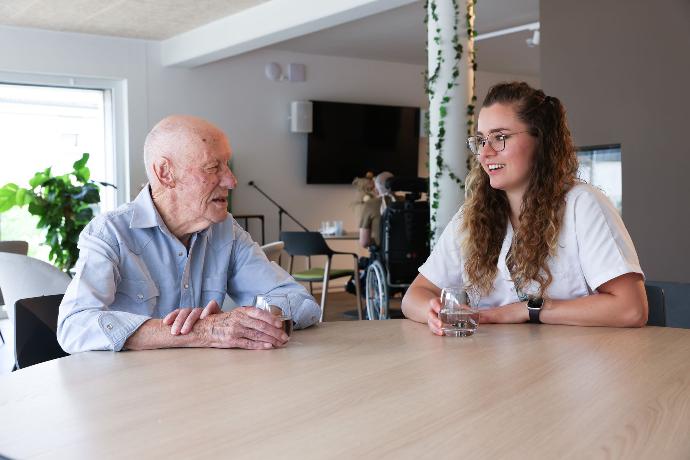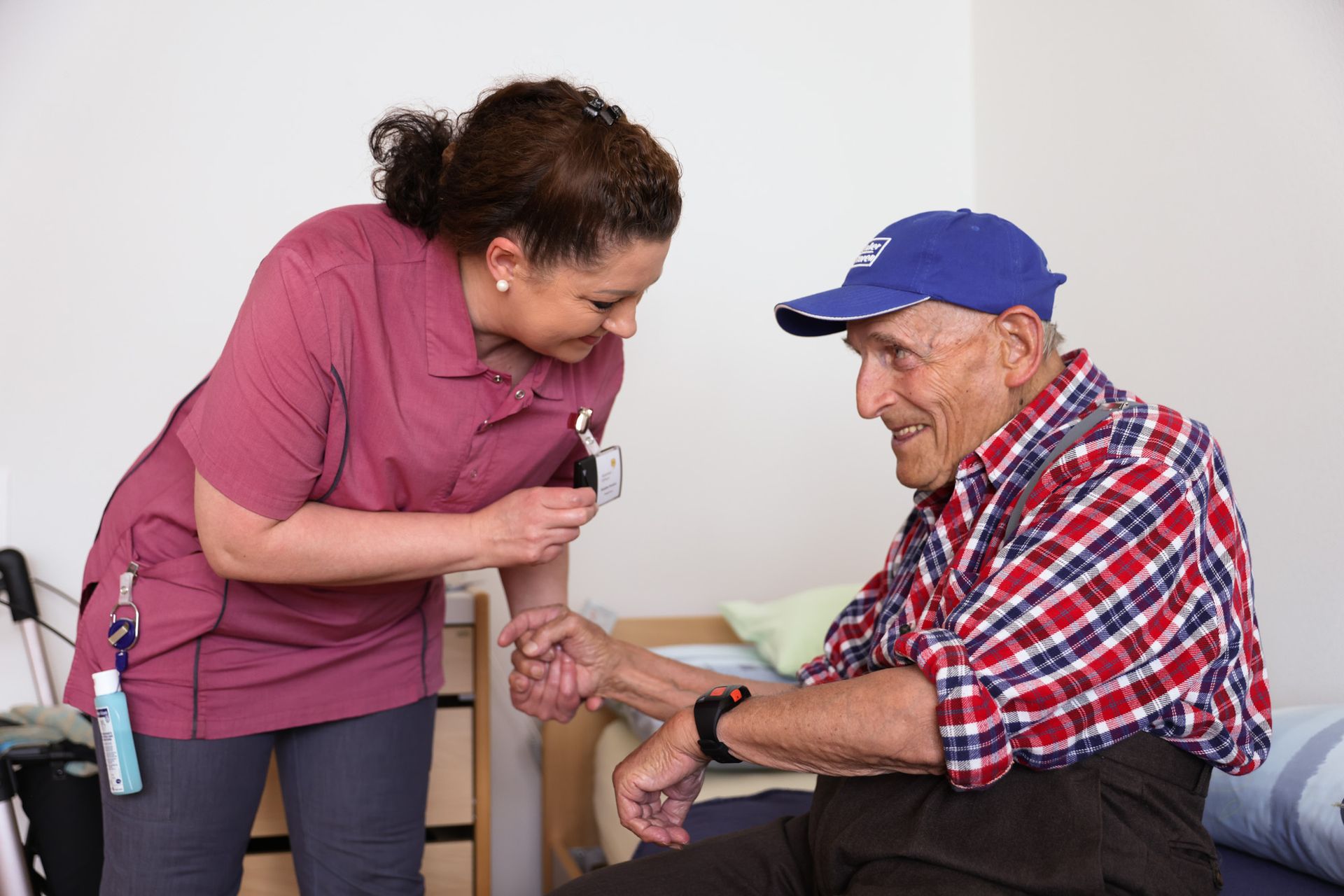The newspaper "Générations" mentioned it in the article of last April 1st, "Who will take care of us tomorrow"?
This question is asked, because today the number of elderly people is increasing and many of them have to move into a nursing home. So everyone will be happy to know that qualified personnel will be there to take care of them and who are also happy to do their job. Yes, but ... The shortage of staff forces a caregiver to take care of an average of four to five people. In Switzerland, we are still far from certain alarming figures in other European countries, but this does not prevent many elderly people from rightly wondering how they will be cared for in a nursing home.
Relationships are as important as care
A resident in a nursing home is a person who is stuck to his or her bed, who wears protective clothing and who does not speak: This distorted and false image does not do justice to the richness of the exchanges and human contacts that are created in an assisted living facility. We must not forget that the work of nurses in retirement homes encompasses much more than just technical care. It is also about relationships and links with residents and their family. The whole human context is essential in these establishments and many nursing homes are looking for a solution to help them do what makes their work so beautiful: exchange, talk, take care and listen to the sometimes incredible life paths of the elderly.

Technology as a solution?
At SmartLiberty we all have or will have a family member who will one day go to a nursing home. This motivates the whole team to find solutions that can really help you in order to value the human contact more and more. Through a digital solution, the company seeks to offer what today represents its primary mission: "more time for care".
So how can a digital, and therefore technical, solution help the human being? To do this, it must be used as a popular tool in daily work instead of letting it degenerate into an annoying technical gadget.
When SmartLiberty developed its mobile application, the first idea was to add on the request of the nursing homes, the necessary functions to save time and relieve the nurses on their daily tasks by fluidifying the communication within the establishment.
Specialized functions
One of the most important functions is the alarm management, that allows the nursing staff take over the alarm in the system. Other caregivers are notified and do not need to run to the person who has triggered the alarm. This reduces the stress level in the building and ensuring human contact, because the alarm can only be cancelled if the caregiver is close to the resident. While this feature primarily maintains contact between the resident and the nursing staff, it also saves precious minutes per day by preventing several nurses from going to the same location to attend the same alarm. Each one saves time which can be used to take care of another resident.
This can make a huge difference on a daily basis. Every feature of the SmartLiberty system is designed to have the same result: freeing up time for the caregiver which he or she can spend with the resident.

With the help of an intelligent telephone system, each caregiver will find all staff members connected and can see their occupancy status. For example: If the person is free for a phone call, if they are busy, if they are taking over an alarm or if they are in a meeting. Not calling someone in vain means once again: saving time. As you can see, saving time on the daily workload of the caregiver frees up time for human contact with the residents.
Still in this perspective, new SmartLiberty products will soon complete the current solution to also offer a link between the family and the resident as well as between the resident and the nursing staff.
Download PDF
FR DE EN